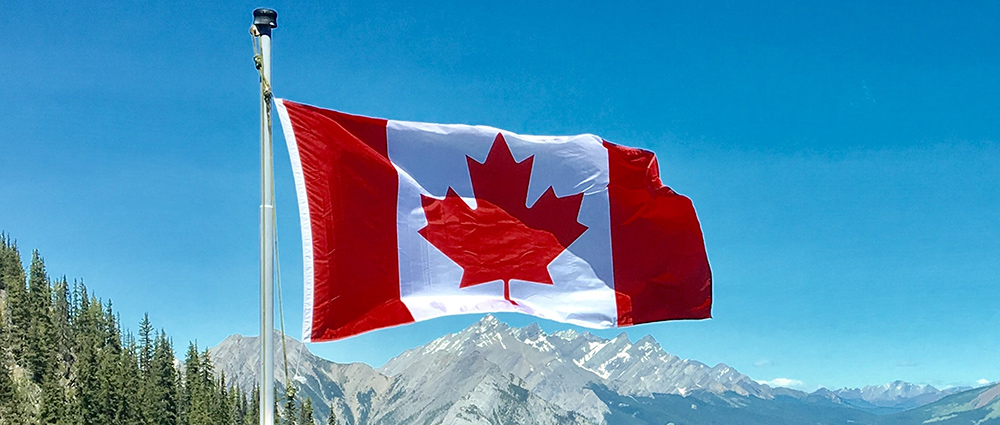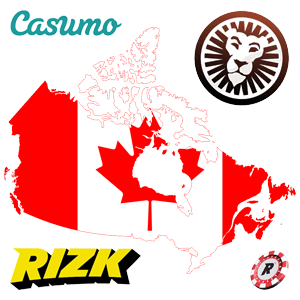History Of Gambling In Canada
Canada has a long history of gambling, and currently, it counts as the 8th biggest gambling market in the world, but it was a long and challenging journey to get there.
Gambling in the country was initially banned before regulations made it an acceptable form of entertainment again in the 20th century.
In 1947, John Cabot and his crew brought playing cards with them, but he discovered that there was already some gambling among the native tribes. A native Canadian tribe played
"Slahal", the game was played with sticks and stones and had a significant emotional, spiritual and physical impact on the tribe members long before Cabot's arrival.
As the government and some residents considered gambling as an immoral past time, gambling was banned in 1892.
The regulation started to change over the years: in 1900, raffles and bingos were allowed on charity events, and in 1910 betting on horse racing was allowed at the tracks.
People have also been illegally gambling in mafia organized gambling halls since the 1930s until finally, the regulations in the 1970's made gambling again an acceptable form of entertainment.
Canada has come a long way.
Today, brick-and-mortar casinos are an important part of the economy, giving jobs to 182,500 people and paying $9.2 billion in taxes.

Canada is the 8th biggest gambling market in the world.
According to a study done by the Canadian Gaming Commission in 2017, the country has
114 land-based casinos, and they are equipped with over
65,000 electronic gaming machines and 2,000 table games. There are also a vast number of video lottery machines, bingo halls, charity lotteries and
227 race tracks found in Canada.
Of course, if the bustling casino scene isn't your thing and you prefer to play from the comfort of your home, you still have plenty of options. You can select any one of the hundreds of games or pick from dozens of casino websites and
welcome bonuses online.
Is online gambling legal in Canada?
As a player, you can safely play at any licensed casino, and there is no legislation stopping you from doing that. You can freely play and have confidence in any casino, which is regulated by the
Malta Gaming Authority (MGA), the United Kingdom Gambling Commission (UKGC), the Gibraltar Betting and Gaming Association (GBGA) or the Kahnawake Gaming Commission and any other well recognized gaming authority. If you are living in Ontario, you can only play at online casinos licensed in Ontario.
Always make sure that you are playing on a regulated gaming site where your money and personal data are safe.
The KGC licenses hundreds of online casinos and
sports betting websites. The licence is one of the easiest to get, but large companies have preferred to get licensed in Malta or Gibraltar in recent years. All
casinos featured on CasinoFever are regulated online casino sites that you can use with confidence.

Canadian players can have their picks from dozens of online casinos.
There are some local regulations in place in Canada's territories and provinces, but none of these affect the player; they are aimed at casino owners who attempt to run casinos without licences. Depending on where you live in Canada, you should always keep an eye on law changes in the territory or province, but as of now, there is no federal regulation in place.
There are slight differences between territories when it comes to gambling. One of these is the legal age of gambling:
the legal age to enter casinos in Canada is 19, except for Alberta, Quebec, and Manitoba where player's legal age is 18.
 Canada has a long history of gambling, and currently, it counts as the 8th biggest gambling market globally. Gambling in Canada is more popular than ever; in fact, more than 19 million Canadians engage in some form of gambling regularly.
Canada has a long history of gambling, and currently, it counts as the 8th biggest gambling market globally. Gambling in Canada is more popular than ever; in fact, more than 19 million Canadians engage in some form of gambling regularly. Sports Betting
Sports Betting

 Open for Canadian players
Open for Canadian players

















 Of course, it does! Canadian casinos and online gambling continue to gain popularity. Canadians like to gamble for fun, and people are learning more about the world of online gaming.
Of course, it does! Canadian casinos and online gambling continue to gain popularity. Canadians like to gamble for fun, and people are learning more about the world of online gaming.



